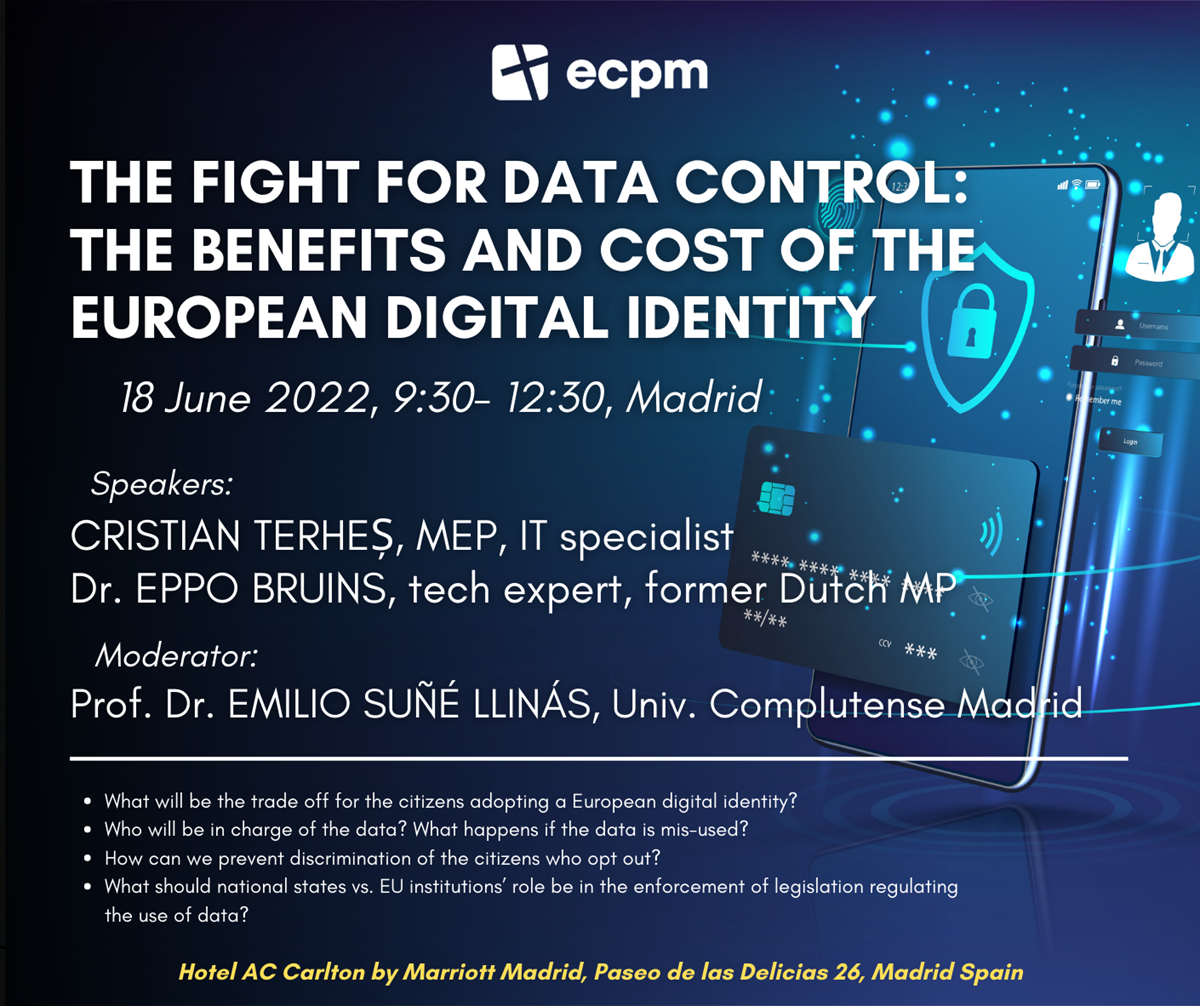
Saturday, June 18, 2022 09:30 - Saturday, June 18, 2022 12:30
The Fight for Data Control: The Benefits & Cost of the European Digital Identity
In the aftermath of the COVID pandemic, the European Union decided there is a need for increased digitalization in Europe and for a centralized solution regarding services and access to them by the European citizens.
Part of the big digital transformation package is also the initiative on a European Digital Identity platform (more than an initiative at this point; it is a 2021 Regulation of the European Parliament and of the Council (amending Regulation (EU) No 910/2014) on electronic identification and trust services for electronic transactions in the internal market (eIDAS)).
Examples of digital identity platforms: itsMe (Belgium), Chave Móvel Digital (Portugal), mojeID (Czech Republic), DigiD (The Netherlands). DNIe (Spain) and of digital Wallets: PayPal, ApplePay, SamsungPay, Revolut.
Features and benefits of the European Digital Identity platform:
every person eligible for a national ID card would be able to have a digital identity that is recognized anywhere in the EU
a simple and safe way to control how much information you want to share with services that require sharing of information
operated via digital wallets available on mobile phone apps and other devices to:
identify online and offline
store and exchange information provided by governments e.g. name, surname, date of birth, nationality
store and exchange the information provided by trusted private sources
use the information as confirmation of the right to reside, to work, or to study in a certain Member State
The European Digital Identity can be used for any number of cases, for example:
public services (requesting birth certificates, medical certificates, reporting a change of address etc.)
financial services (opening a bank account, filing tax returns, applying for a loan, opening a new credit card etc.)
education (applying for a university, at home or in another Member State; requesting school transcripts; replacing a lost diploma)
medical services (storing a medical prescription that can be used anywhere in Europe, accessing vaccine certificates, processing of medical insurance claims and reimbursements)
leisure, entertainment (proving your age when entering a bar or buying alcohol, renting a car using a digital driving license, checking in to a hotel etc.)
Info gathered from the Commission's page: https://ec.europa.eu/info/strategy/priorities-2019-2024/europe-fit-digital-age/european-digital-identity_en
It is stated emphatically that this would be a safe and trusted platform/ tool, that the privacy of the citizen will be at the core of it and that the citizen is in control of how much data is shared through this technology.
But is it really so?
Our panel discussion wants to weigh the pros and cons of this Regulation and proposal for a European Digital Identity.
On one hand, we can understand the convenience of using such a technology Europe-wide, we hear those who claim this would aid in fighting crime, preventing money laundering and tax evasion, finding a missing person much sooner etc. On the other hand, serious questions need to be raised about the enormous amount of data that would be compiled in this way, who would manage it and what are the risks. A robust discussion is worth having about the legal framework and the enforcement of punishment in case data is leaked or misused.
Questions to be explored:
? How can we make sure this technology is secure? How do we gain and maintain citizen trust?
? How can we ensure the right to opt out?
? How can we make sure citizens who opt out (or choose not to use it at all) are not excluded from basic/ public services?
? What should be the consequences for governments selling or mis-using citizens’ data?
? What would be the benefits for law enforcement in combating national/ international crime (for example: human trafficking)?
? Many existing technologies which use automatization or AI have been shown to discriminate against people of color or people with ethnic names/ features. How do we prevent that from happening with eIDAS?
? What kind of legislation or guardrails are requires for these new tech tools and who would enforce it?
? What should national states vs. EU institutions’ role be in the legislative process and its enforcement?
? How would you respond to the average citizen who sees the many benefits of the eID and is willing to trade off access to his/her personal data, saying “I have nothing to hide”?
? What happens when the device that holds all your data is stolen or lost or runs out of battery?
? What happens in the case of poor citizens who do not have access or the means to a (vendor-purchased) smartphone and therefore their OS does not update regularly?